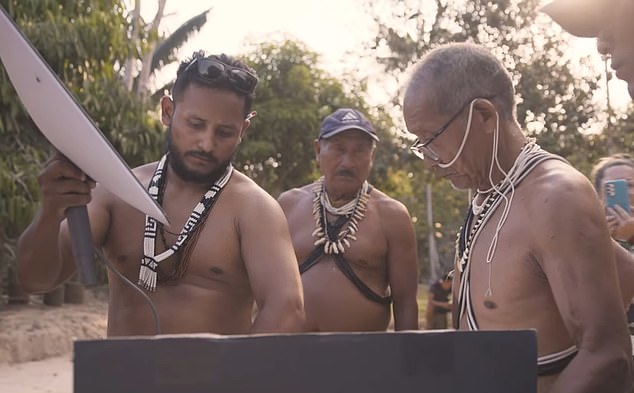Leaders of a remote tribe in the Amazon rainforest have told how the advent of the internet has left their members grappling with the pitfalls of social media and pornography addiction, while falling for online scams.
The Marubo people, who for hundreds of years lived in small cabins scattered along the Itui River in Brazil, were introduced to high-speed Internet for the first time last year thanks to Elon Musk’s Starlink satellite program.
The community of 2,000 quickly discovered the incredible benefits the new technology had to offer.
Suddenly, tribal people could call for help in the event of an emergency, and medical helicopters could reach the injured in a matter of hours instead of days. They could also instantly connect with family or friends camped dozens of kilometers downstream, or even further away.
But soon after the Marubo people learned of the joys of the Internet, the dangers quickly began to reveal themselves.
Now indigenous tribal leaders report that people are getting lazy and spending hours scrolling through social media with teenagers hooked on graphic pornography.
Members of the Marubo tribe install a satellite dish to receive Starlink connection
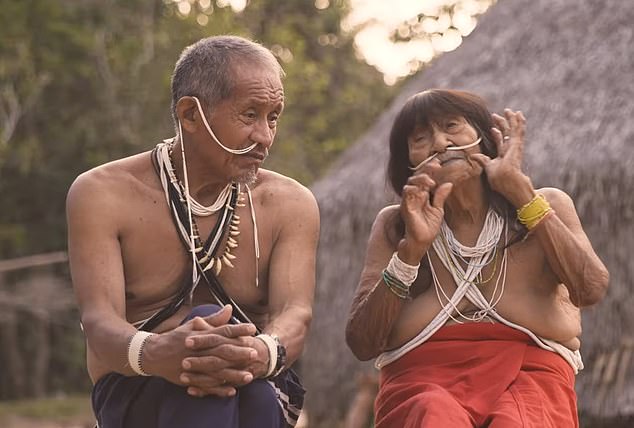
Indigenous tribal leaders report that people are becoming lazy and spending hours scrolling through social media with teenagers hooked on graphic pornography.
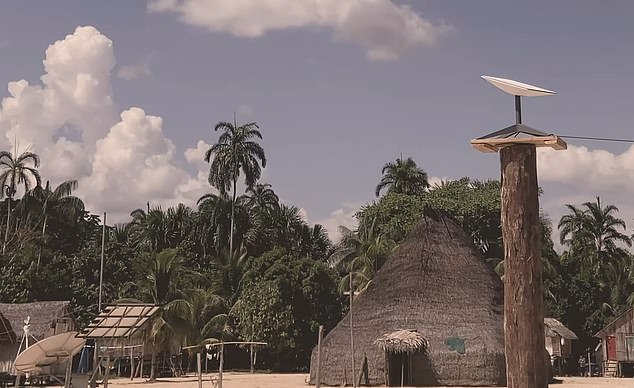
Satellite equipment is displayed outside the hut of a Marubo settlement.
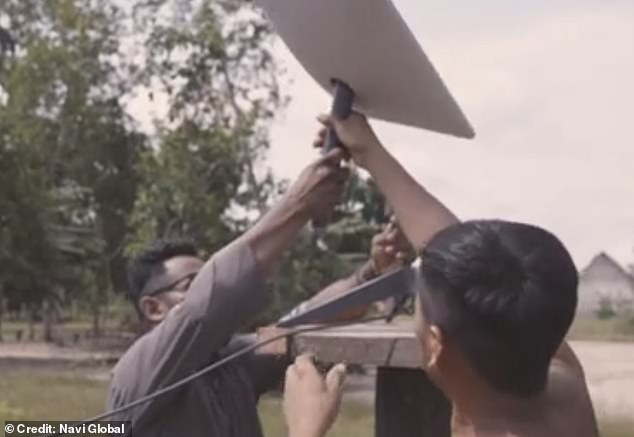
The community of 2,000 quickly discovered the incredible benefits the new technology had to offer, but also the dangers.

The Marubo people, who for hundreds of years have existed in small cabins scattered along the Itui River in Brazil, were introduced to high-speed Internet for the first time last year thanks to Elon Musk’s Starlink satellite program.
Enoque Marubo, 40, told reporters at the New York Times The Internet had transformed the once simple and technologically resilient lifestyle that its people had observed for centuries.
“It changed the routine so much that it was detrimental,” Enoque admitted. “In the town, if you don’t hunt, fish and plant, you don’t eat,” he said.
Meanwhile, Alfredo Marubo (all members of the tribe share the same last name) said sudden exposure to pornography had precipitated a worrying rise in overt sexual behavior in a culture where kissing in public is considered shocking.
He said young men were sharing explicit videos in group chats, adding that some prominent figures in the tribe had reported seeing more aggressive sexual behavior from young men.
Alfredo also noted that, despite being more connected than ever, tribe members had withdrawn from in-person social contact and stopped talking to their own families.
TamaSay Marubo, the first woman to be given a leadership role in the tribe, said that while social media had opened the eyes of the tribe’s youth to the world, it had also made them abandon their responsibilities and spend hours in front of their smartphones.
Several tribe members said they were concerned that the group’s traditions were being lost and also expressed concern that the tribe’s social fabric was being infected by rumors circulating in group chats.
Others explained that some Internet users had been abused by strangers on social media and had fallen for unspecified scams.
Tribal elder Tsainama Marubo, 73, put it simply.
“Things have gotten worse,” he said.
‘Young people have become lazy because of the Internet. They are learning the customs of the white people.
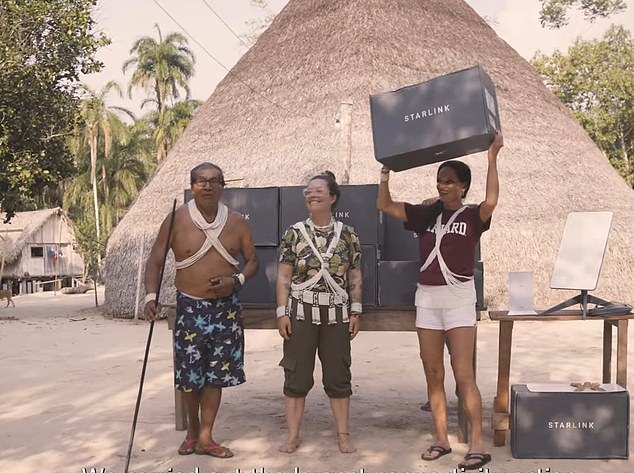
Remote Amazon tribe received internet for the first time last year
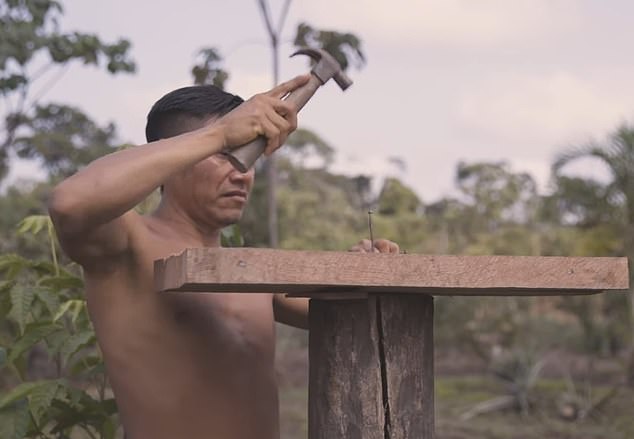
A tribesman builds a pedestal to house a satellite dish.
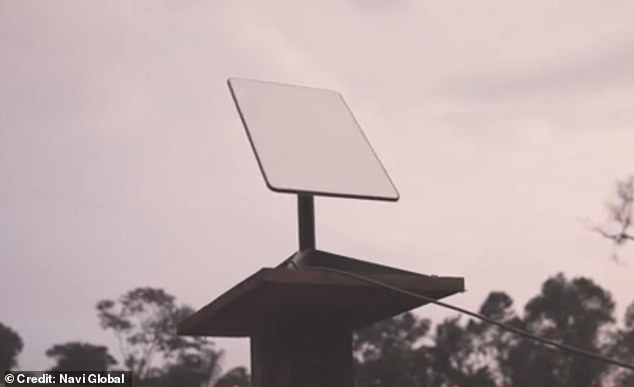
A connected receiver is seen atop a pedestal outside the cabins.

A SpaceX Falcon 9 rocket lifts off from Cape Canaveral Space Force Station on Tuesday, May 28, 2024. The rocket was carrying 23 Starlink satellites.
Social media and pornography addiction, online scams, misinformation, and declining real-life social skills are all byproducts of constant Internet use that have long plagued the developed world.
But unlike those living in major urban centers, who became familiar with the Internet and smartphones as technology steadily developed over time, the lives of the Marubo people were immediately changed when confronted with the full capabilities of modern technology. From overnight.
As such, leaders have resorted to desperate measures in a desperate attempt to limit the impact of the revolutionary new kit.
Access to Starlink is monitored and has time restrictions. Users can now surf the Internet a total of seven hours a day (two hours in the morning and five hours in the afternoon), although leaders allow the community unrestricted access on Sundays.
This policy is considered a temporary measure while the community adapts and figures out how to better integrate technology into daily life.
But like the rest of the world, the Marubo people have no intention of returning to a life without the Internet, even with all its negative impacts on display.
“I think the Internet will bring us many more benefits than harm,” said Enoque.
‘The leaders have been clear. We cannot live without the Internet.”

